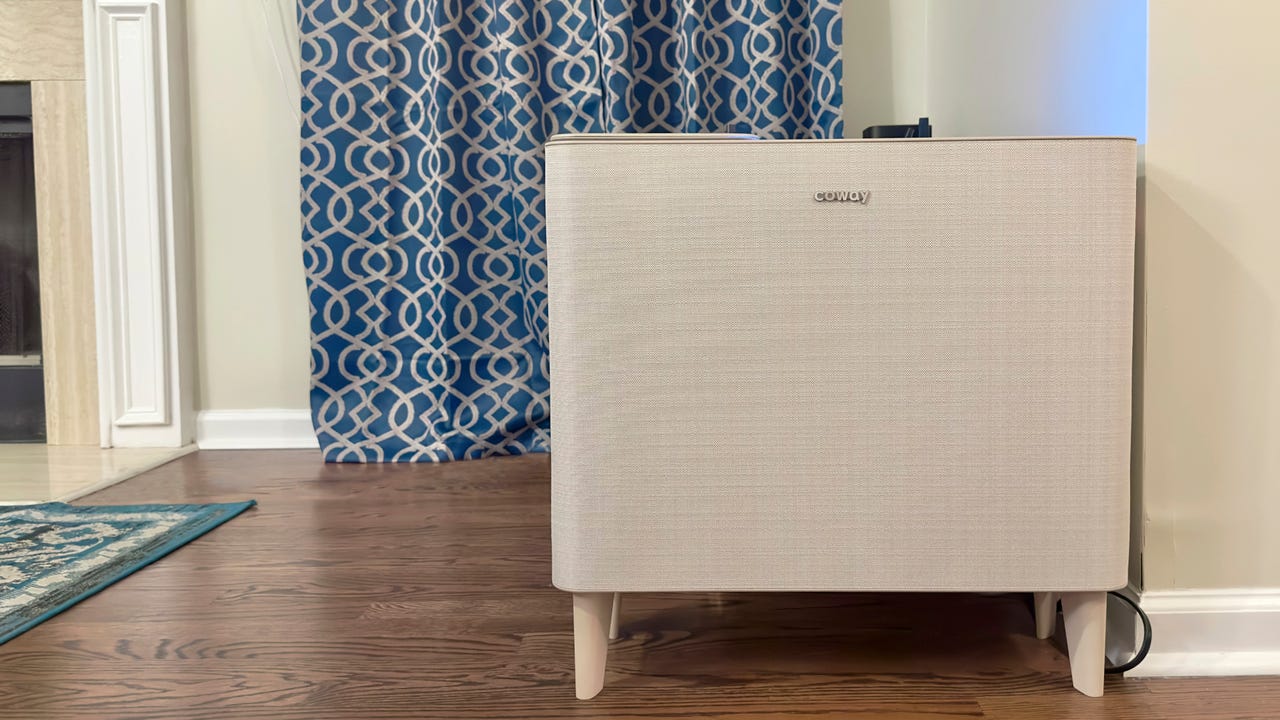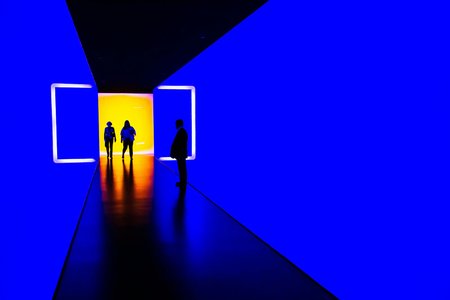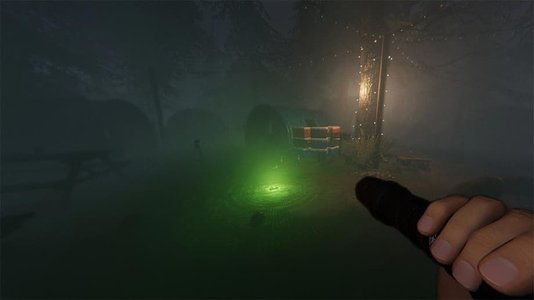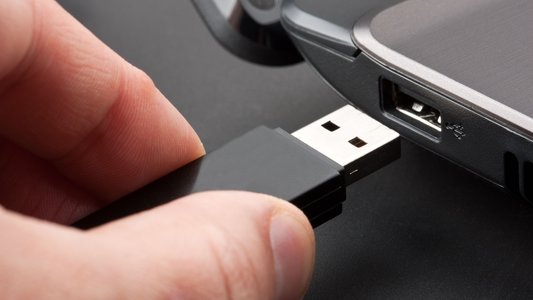
The goal when shopping for an air purifier may be to reduce smoke pollution, lower the risk of viral transmission, or improve seasonal allergies. However, several factors must be considered when choosing and subsequently setting up an air cleaner in a room.
Also: How you can use Google Maps to track wildfires and air quality
It's essential to think about the type of filter, cost, user experience, size of the room or space where the air purifier will go, the price of the unit, and the ease of maintenance -- as well as the follow-up costs for replacement filters. Choosing the right features is paramount for a device that will process the air you'll breathe into your lungs, so we'll rank these features in order of importance.
1. The type of filtration, including the stages
Many air purifiers tout fancy filtration systems to remove the most air particles. You only need to look for one with a true HEPA filter, which stands for High-Efficiency Particulate Air filter. These capture 99.97% of particles that are 0.3 microns in diameter. Everything else is frosting.
Avoid: I'd caution you against buying air purifiers that use UV or ionization, as these produce ozone, a lung irritant proven to decrease lung function and inflame lung tissue.
Also: Wildfire smoke? One of the most efficient large room air purifiers I've used is only $80
Stages are popular in air purifying systems. The stages are the layers of filtration that the air goes through in the air purifier during cleaning. These devices typically have at least a washable fabric filter, then a replaceable filter, which is the one that should always be a HEPA filter. This would be a two-stage system. Some systems have three stages, where the third layer is an activated carbon filter that removes odors and some gases from the air.
2. The size of the room you're purifying
To find the right air purifier for your home, measure the size of the room where it will be installed.
Air purifiers are optimized to clean specific-sized rooms. Their power is measured by how often they can exchange all the air in the room, called Air Changes per Hour (ACH). The higher the ACH, the more powerful the air purifier.
Also: This air purifier is a must for pet parents, and it's on sale for $90 off
An ACH of 4 means it can exchange all the air in the room four times in one hour, cleaning the air in the room in only 15 minutes. The CDC published guidelines recommending five air changes per hour to reduce airborne virus transmission.
For example, the Levoit Vital 200S air purifier can clean the air in a 380-square-foot room (think 20-foot by 19-foot) in just 12 minutes. That's an ACH of 5. It can still be used in larger rooms, but its ACH rate will decrease for larger rooms.
3. Cost, including maintenance
Cost is another critical factor when choosing an air purifier. The aforementioned Levoit Vital 200S , priced at $190, is as easily found as a $659 one from iAdaptAir from Air Oasis , so choosing wisely is important.
After you factor in the room size for your air purifier and the initial budget, you need to consider maintenance costs and factor that into your long-term budget. Air purifiers need filter replacements every few months -- whether every three, six, or 12 months will depend on the filter and the use.
Also: This silent air purifier keeps my home free of smoke, odors and allergens
Some air cleaners have a lower up-front cost but require frequent and more expensive filter replacements, so check how often filters need to be replaced and how much they cost before settling on a model. You can also check the product reviews to see if there are often issues with delays and stock.
4. Noise level, depending on where you put it
I don't mind the hum of an air purifier by my bed -- it serves as a source of white noise to lull me to sleep with clean, fresh air. But I don't always want to hear the fan when I'm working and need to focus while my dog is in the office, triggering my allergies, so I know I need a quiet one in that room.
There are a lot of whisper-quiet air purifiers on the market, ranging from 24 to 30 decibels. For reference, the hum of a refrigerator is around 40 dB, and a vacuum cleaner ranges from about 60 to 70 dB.
Also: Don't ignore this troubling metric that your smart air purifier tracks - here's why
The noise level is typically listed on the air purifier's specifications chart, so look at it if you're sensitive to noise or looking for a quiet device.
5. Extra and smart features
I enjoy smart features in almost any home device. My smart air purifiers feature integrations with Alexa, so I can ask my Echo speakers to turn them on or off and control them as part of 'goodnight' routines, and I can easily control them from apps on my phone.
Also: This smart air purifier doubles as a wireless charger and looks like mid-century furniture
Other extra features include air quality indicators, schedules, timers, and filter change indicators. These features add convenience to the consumer, but they could increase the device's initial cost, so consider which are worth the expense.
FAQ
Is there a downside to air purifiers?
An air purifier with a HEPA filter has no real downsides, aside from the monetary investment and the minor energy consumption.
Some air purifiers use UV and ionization to neutralize air particles, but they produce ozone as a byproduct of their operation, which can cause lung irritation, coughing, and even permanent lung damage.
Also: This smart air purifier doubles as a wireless charger and looks like mid-century furniture
This is why it's best to choose air filtration systems with HEPA filters instead of UV filters, as these trap the fine particles in the air without producing gases.
Does an air purifier help with wildfire smoke?
Yes, air purifiers can help with wildfire smoke -- when used correctly. Air purifiers provide filtration for enclosed spaces by removing fine particles in the air, including those in smoke.
Also: Don't ignore this troubling metric that your smart air purifier tracks - here's why
These portable air cleaners can remove wildfire smoke from indoor air as long as the following conditions are met:
- The doors and windows remain closed
- The air purifier can exchange the air in the entire room
- The air cleaner uses a HEPA filter
- The air purifier is maintained correctly (the filter is clean and doesn't need replacing)
If you're concerned about wildfire smoke and have sensitive population members at home, you can also use a high-quality air filter in your home's HVAC system.
How do air purifiers work?
An air purifier is a filtration system for the air in an enclosed space. It's an enclosure with a fan inside to pull the air from one side and push it out the other. As the air is pulled in, it's pushed through layers of filters to remove the fine particles from it, and the clean air is released on the other side.
Looking for the next best product? Get expert reviews and editor favorites with Recommends.
Recommends
-
The best smartwatches you can buy: Apple, Samsung, Google, and more compared
-
The 5 best VPN services (and tips to choose the right one for you)
-
The best Android phones you can buy (including a surprise pick)
-
The best robot vacuum and mop combos (and if they're worth the money)



































